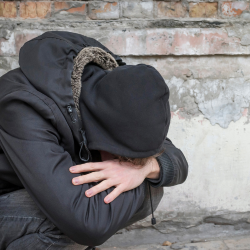20+ Years Experience
Specialist Cocaine Addiction Help

Cocaine detoxification is a complex and challenging process that requires a comprehensive understanding of the stages, timeline, and treatment options.
Seeking professional help is essential for success, as it ensures medical supervision and mental health support.
In this blog post, we’ll delve into the various aspects of cocaine detox, from the crash phase to recovery, and explore treatment options and tips for managing the process at home.
Strap in and get ready for a transformative journey towards a healthier, drug-free life.
The journey towards overcoming cocaine addiction involves a three-stage detox process: the crash phase, cocaine withdrawal symptoms, and recovery.
Each stage presents unique challenges and symptoms that must be navigated with care and determination.
Factors such as chronic and intense drug use, the purity of the drug, and the presence of other drugs mixed with cocaine can impact the duration of the cocaine withdrawal process.
Cocaine abuse and alcohol abuse cocaine itself can also play a significant role in the severity of cocaine abuse and alcohol withdrawal symptoms.
Long-term rehabilitation programs are recommended by the National Institute on Drug Abuse (NIDA) for more positive results.
As they provide a secure environment to maintain sobriety and opportunities to acquire coping strategies for substance abuse and mental health and life skills.
The crash phase of cocaine detoxification is an interval where physical and psychological symptoms emerge after ceasing or diminishing cocaine consumption.
This phase can occur within a few hours of the last dose of cocaine use and may last from a few days to a few months, depending on the individual’s history of cocaine use and the specific treatment plan.
Typical indications of the crash phase include:
Given the overwhelming nature of this initial stage, having a solid support system and professional guidance is imperative.
Cocaine withdrawal symptoms during cocaine detoxification can range from mild to more severe symptoms. Individuals may experience:
Acute cocaine withdrawal can manifest as depression, negative sentiments and emotions, and even suicidal ideations or attempts.
Under such circumstances, it is vital to undergo medical detox, which ensures medical supervision and mental health support throughout the cocaine withdrawal process.
Protracted cocaine withdrawal symptoms may also occur, with more severe cases of symptoms lasting beyond the expected time frame, and the Mental Health Services Administration recommends seeking professional help for managing these symptoms.
The recovery stage of cocaine detoxification is focused on addressing and altering negative behaviours that have contributed to cocaine addiction and implementing relapse prevention strategies.
Detoxification is only the first step; engaging in a treatment program and seeking peer support is necessary to ensure long-term success.
At this stage of early recovery, it is paramount to avoid drug abuse relapse and substance abuse relapse prevention, while recovering individuals reconstruct their lives and acquire new coping strategies.
A recovery support group is highly recommended to accompany a treatment program, as it provides camaraderie, encouragement, and a sense of accountability.
With the right support system in place, individuals can successfully navigate the recovery process and move towards a healthier, drug-free life.
Procuring professional help for cocaine detoxification is vital for safeguarding the safety and well-being of individuals struggling with addiction.
The psychological symptoms of acute alcohol, or prolonged alcohol and cocaine withdrawal can be hazardous, and attempting to detoxify naturally with alcohol or other substances without proper guidance and supervision can lead to dangerous consequences.
Medical detoxification offers a secure environment for healthcare practitioners to observe and manage symptoms, which is crucial for successfully navigating the detoxification phase of treatment.
In addition to the essential components of medical withdrawal management, receiving professional assistance for cocaine detoxification also includes mental health support.
Cognitive-behavioural therapy and dialectical behavioural therapy are two of the clinical services available during the detox journey.
They can be particularly beneficial as they help transition away from addictive thinking and manage withdrawal symptoms.
Obtaining professional help for mental disorders, whether from addiction treatment centres or healthcare providers, is essential to managing mental health during cocaine detoxification.
During cocaine detox, medical supervision is vital to ensure the safety and welfare of the individual undergoing detoxification.
Medical personnel carefully observe the individual’s vital signs, manage withdrawal symptoms, and administer necessary medications or treatments to ease discomfort.
Furthermore, they assess the individual’s general health and address any issues that may arise during the detox journey.
Medical oversight ensures a seamless and successful detoxification process, providing individuals with the support they need during this challenging time.
Mental health support is a valuable resource during cocaine detoxification, as it helps address the root issues contributing to addiction and provides guidance for handling cravings and emotional challenges.
Counselling, therapy, and support groups can offer emotional and practical support during this period, helping individuals navigate the complex emotions and challenges associated with withdrawal.
By addressing these issues and offering support, mental health professionals can play a crucial role in guiding individuals through the detox journey and setting them on a path towards long-term recovery.
The timeline for cocaine detoxification varies depending on the individual’s usage history and other factors. Drug elimination times can impact certain aspects of the cocaine detox and withdrawal timelines, with short-term users typically experiencing a quicker detox journey compared to long-term users.
Acute cocaine withdrawal symptoms have been observed to persist for a period of approximately 3-4 days, with the overall detoxification process typically spanning an extended period of five days or more, which vary depending on the severity of mild symptoms and the individual case.
Notably, certain individuals, particularly those with a history of severe cocaine addiction, may experience protracted withdrawal symptoms that persist for several weeks or even months.
Understanding the timeline for detox from cocaine and detox from cocaine alone can help individuals better prepare for the process and set realistic expectations for their recovery journey.
The cocaine detox timeline for short-term users can vary, often observing withdrawal symptoms that persist from a few days after cocaine rehab to a few weeks after repeated cocaine use. Symptoms of detox from cocaine after using for short-term users may include:
Professional help is still recommended during the detoxification early recovery process, as it can aid in managing withdrawal symptoms and offer guidance and support during this challenging time.
Long-term users of cocaine may experience more severe withdrawal symptoms and a longer recovery process, the detox stage sometimes lasting several weeks or more. Frequent triggers during detox from repeated use of cocaine and detoxification may include:
Long-term users must seek professional assistance to ensure a safe and successful detoxification process, and to develop coping strategies for managing triggers and preventing relapse.
There are several cocaine addiction treatment options available for individuals seeking to detox from cocaine, each with its own benefits and considerations.
Inpatient programs, outpatient programs, and medication-assisted further treatment programs are all viable options that can be tailored to the individual’s needs and personal circumstances.
Consultation with a healthcare professional or addiction treatment specialist is vital to determine the most suitable course of action, tailored to the individual’s specific needs and circumstances.
Inpatient programs for cocaine detox provide a structured, supportive environment for individuals to focus on their recovery. These programs offer:
The cost of inpatient drug rehab may vary, but most treatment centres accept some form of insurance to assist with payment, and other payment options are available, such as third-party healthcare loans or reduced out-of-pocket payments.
Inpatient programs can be an effective choice for individuals who require intensive support and a structured environment during their detox and recovery journey.
Outpatient programs for cocaine detox offer flexibility and enable individuals to preserve their daily activities while obtaining treatment and assistance for detoxification and recovery.
These programs provide medical supervision, counselling, and support to assist individuals in safely withdrawing from cocaine and other substances and managing their recovery.
Outpatient programs can be a suitable option for individuals who prefer to maintain their daily routines and responsibilities while receiving treatment and support for their addiction.
Medication-assisted treatment for cocaine detox involves the utilisation of medications to aid individuals in overcoming cocaine addiction and managing withdrawal symptoms.
While there are no FDA-approved medications specifically for cocaine addiction, certain medications have demonstrated the potential to decrease cocaine cravings and alleviate cocaine withdrawal symptoms, such drugs such as disulfiram and vigabatrin.
It is essential to note that medication-assisted treatment is typically employed in conjunction with therapy and other supportive interventions.
Consulting with a healthcare professional or addiction treatment specialist can help determine if medication-assisted treatment is appropriate for an individual’s specific needs and situation.
While it is strongly advised to seek professional help for cocaine detox, some may opt to manage the process at home.
In these instances, forming a robust support system, cultivating healthy habits, and identifying potential relapse triggers is imperative.
These tips can be instrumental in helping individuals navigate the detox journey, start treatment, and maintain their recovery in a home environment.
Creating a support system during cocaine detox is vital, as it offers both emotional and practical support throughout the recovery journey.
Assistance from friends, other family members, and professionals can assist individuals in staying motivated, managing withdrawal symptoms, and avoiding relapse.
Furthermore, it offers a sense of accountability and encouragement, making the detoxification journey more manageable and successful. To build a support system, individuals should:
Adopting healthy lifestyle habits like regular exercise, balanced nutrition eating good food often, and sufficient sleep can aid both body and mind during the detox journey, contributing to improved physical and mental health.
Exercise can help reduce stress and enhance mood, while proper nutrition and adequate sleep can aid the body in healing and recuperation.
To establish and sustain healthy habits during the detox period, individuals should set achievable goals, find enjoyable activities, and build a support system of friends and other family members who can provide encouragement and motivation.
Identifying triggers during cocaine detox is crucial, as it helps individuals pinpoint specific situations, people, or emotions that could instigate drug cravings and potential relapse.
By understanding and being cognizant of these triggers, individuals can devise strategies and coping mechanisms to prevent high risk of relapse, avert or prevent high risk of relapse and manage them effectively, augmenting their likelihood of successful detoxification and long-term recovery.
Strategies for managing triggers during cocaine detox may include:
The detox process consists of the crash phase, withdrawal symptoms, and recovery stages, each leading to a more healthy lifestyle.
Professional help during cocaine detox is essential in order to ensure medical supervision and provide necessary substance abuse and mental health support for a safe and successful withdrawal.
Inpatient programs provide a residential environment with 24/7 support, whereas outpatient programs allow individuals to receive treatment while still maintaining daily routines.
Creating a positive support system, maintaining healthy habits and recognising potential triggers can help individuals manage cocaine detox at home effectively and avoid relapse.
Recognising triggers during cocaine detox involves being aware of potential situations, people, and emotions that could lead to cravings, and developing strategies to manage them.
In conclusion, understanding the detox process, timeline, and available treatment options is crucial for individuals seeking to overcome addiction and achieve long-term recovery.
Professional help, support systems, and healthy habits play a significant role in ensuring a successful detox and maintaining sobriety.
By taking the necessary steps, individuals can navigate the challenges of detox and recovery, ultimately building a healthier, drug-free life.
Remember, the journey may be difficult, but the reward of a renewed sense of self and freedom from addiction is well worth the effort.
There are a range of other services that we can provide. Have a look at the list below for more information:














We Aim To Reply To All Enquiries With-in 24-Hours